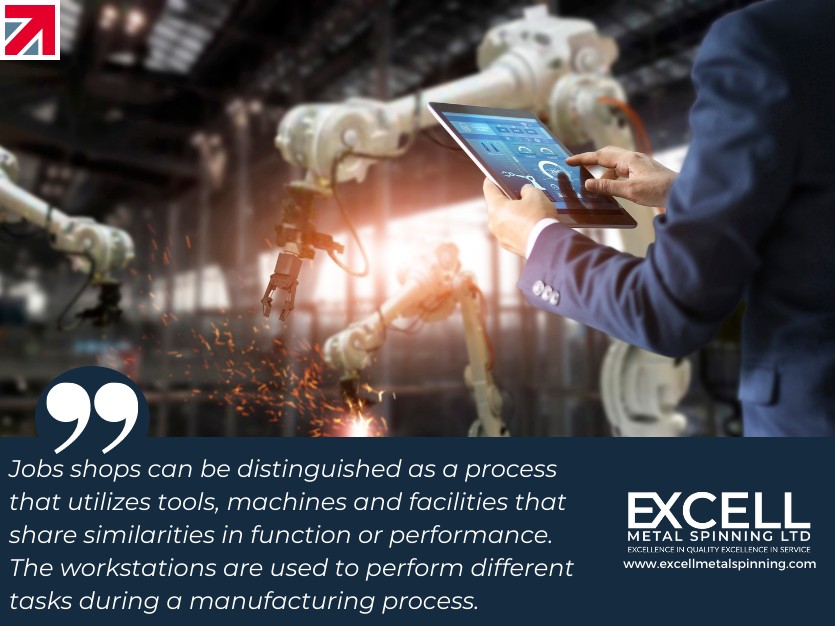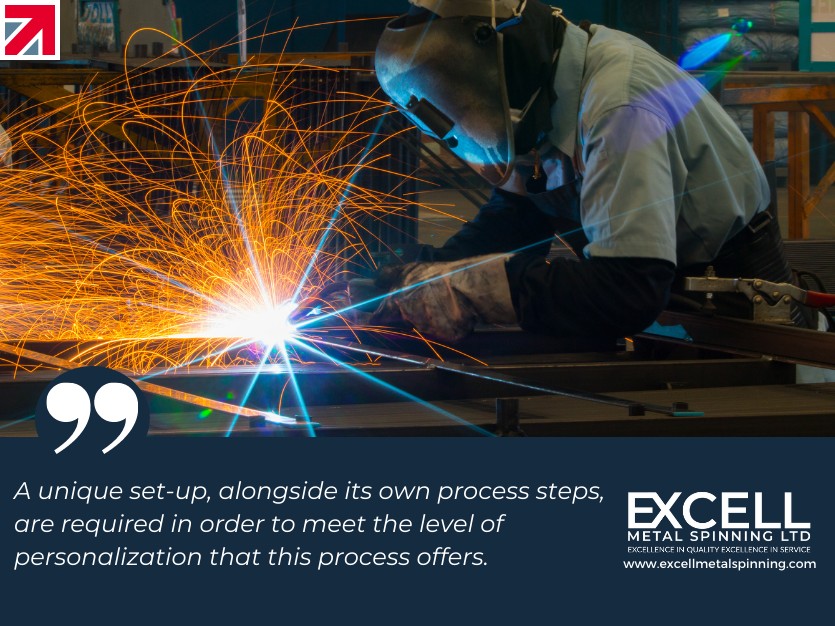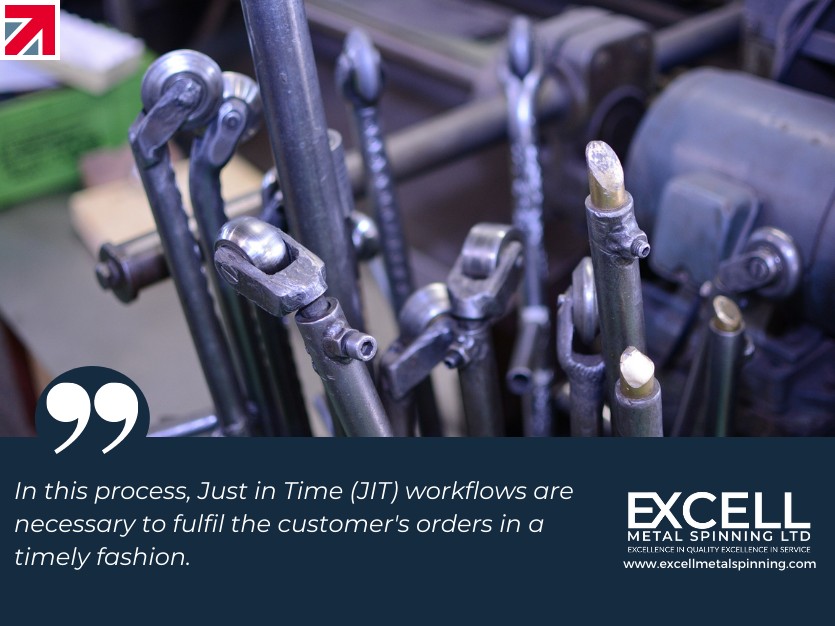Christmas is fast approaching around the corner and Santa has some huge quotas to meet, ready for the big day!
The operations required for items so diverse, would surely make it an impossible feat to incorporate assembly lines. Blimey, how does the well-rounded man do it?
You’re not on the naughty list if you didn’t know this already (Phew!). The answer is Job Shop Manufacturing which forms one of six manufacturing processes that you can read more about here.
In the meantime, let’s jump into the world of Job Shop manufacturing.
What is Job Shop Manufacturing?
Job Shops are widely used within the manufacturing industry, and have been developed to achieve optimal flexibility. Jobs shops can be distinguished as a process that utilizes tools, machines and facilities that share similarities in function or performance. The workstations are used to perform different tasks during a manufacturing process.
Products however are not standardized, and therefore customers customize their order to suit their needs and wants. As a result, the final products produced using the job shop manufacturing process are done so in small batches (of varying quantities).
A unique set-up, alongside its own process steps, are required in order to meet the level of personalization that this process offers. This is because items will move differently to the next process and can often return to the same workshop several times (depending on the product’s manufacturing requirements).
Manufacturers who adopt this process can sell their products to wholesalers, directly to the customer, and traditionally, produce parts for other businesses.
In this process, Just in Time (JIT) workflows are necessary to fulfill the customers’ orders in a timely fashion. Check out our short blog on “3 ways you can improve your supply chain”.
Let’s check out an example of Job shop Manufacturing …
A Job Shop Manufacturing Example
A wide variety of manufacturers adopt job shop manufacturing, and in our example, we’re going to look at how it is used within our organization.
Excell is a manufacturer that specializes in producing metal cylindrical components in the art form of Metal Spinning. We achieve this by;
1. Design
Components or products are customized by the customer. Job Shop manufacturing allows for manufacturers to personalize each individual item because of the unique set-up involved.
The customer chooses from a range of materials and also has the option of selecting the type of finish they want for their components or products. Excell collects the customer’s measurements from the item’s blueprints and production commences.
Along with the different variations customers can choose from, they can also decide if they want their components or products painted or even etched!
2. Preparation of Materials and Cutting
Once the order is made, and materials have arrived, the sheet metal is cut as per the requirements in line with the customer’s order.
One of our expert operators will cut the material into the desired shape within our dedicated workstation for that function. I.e. Metal discs or Metal Strips. This makes workstations ideal to avoid backlogs and delays
3. Rolling & Welding (Dependent on component)
If the sheet metal was cut into strips, it would then undergo a process of rolling the metal strips, before welding the two ends together.
4. First Inspection and Tooling
As with all processes, inspection takes place on the sheet metal discs or welded components in line with ISO 9001: 2015 standards. The tooling is then selected as per the requirements of the customer order.
5. Metal Spinning
Once the Materials have been cut and prepped it then enters the metal spinning process. This is where the metal discs or welded metal strips are formed over a tool. Upon completion the component is shaped as per the customer requirements.
6. Finishing and secondary fabrications
Once the shape of the component is ready it will undergo a finishing process. It will undergo a cleaning process that includes deburring and polishing. Additional secondary fabrications (if required) will take place i.e. Drilling holes before anodizing, paintwork etc.
7. Final inspection and delivery
The components undergo a final inspection before they are packaged and sent out for delivery.
Having workstations separated in this manner allows for the components to be easily transported to the next process. Options of personalization would also mean that items do not go through the same order.
The process itself therefore can become sporadic and offers a variety of advantages and disadvantages. Let’s take a look at some below
Advantages of Job Shop Manufacturing
Product Design Customization
The first benefit of job shop manufacturing is the ability for customers to personalize their order. Customers can be part of the process in making the items unique.
Adaptable to changes
Workstations are divided and changes in the process can be easily managed. This therefore eliminates the need for a complete change to the entire company layout. We often find that customers want to alter the dimensions of the product to make it smaller, and a reduction in tooling simplifies this process in a cost effective and timely manner. This makes Metal Spinning perfect for prototype design.
Better use of resources
A focus on each product can ensure efficient use of resources to fulfill orders using JIT procedures
Flexibility
Prioritization of operations can be made to manage the nature of workflows within job shop manufacturing.
Easier monitoring of products
The movement of components from one station to the next can be easily tracked. It is also great for inspection procedures throughout the process.
Highly Skilled workforce
This manufacturing process requires your workforce to be highly skilled within the craft your business specializes in. It also makes room for a multi-skilled workforce who can operate various workstations. This means you can leave operators to their task and their skills will ensure quality products are delivered in a timely manner.
Lower Investment
The purchase of relevant tools and equipment can be made and stored in the most effective places for your workforce. This also follows the 5S principles and ensures workflow is not disrupted. Any additional tools and equipment required can be purchased and placed within the relevant workstations.
As with all processes, there are a number of disadvantages to consider. Understanding these will ensure you are aware of the risks and can therefore take measures to minimize them.
Disadvantages of Job Shop Manufacturing
Difficult to schedule
The inconsistency of orders, and the multitude of variations of component and product designs can often lead to a backlog of orders. This is generally accepted within industry and often an unavoidable risk. This is because job orders from customers could be minimal one week and huge another week.
Difficult to organize
Items pass through different processes within job shop manufacturing, and therefore it can be challenging to organize your production flow. While some orders are simple and easy, other may incur a large bill of materials (BOM) and will be costly on resources.
Material handling costs
Materials are regularly transported, stored and in the worse case scenario, damaged. Each of these incur costs that will affect your business. Lean manufacturing identifies these as a form of waste that does not add value to the customer’s sales.
High production lead time
You have to wait until you have received an order from a customer before generating a manufacturing order to begin production.
High levels of work
Workload can be intense, especially within a busy period. The opposite can also pose as a disadvantage because resources are not being fully utilised. Both will incur levels of stress within the business.
Although the disadvantages of a job shop appear intimidating, there are ways to mitigate and counteract these risks. In our next blog, we will explore how scaling manufactures use Job Shop manufacturing to avoid running the above risks within the workplace.
Is Job Shop Manufacturing processes something your business has adopted? What are your thoughts on this manufacturing process? Don’t forget to share this page on social media and tell us your thoughts on the topic by tagging us!
Find out more about Excell Metal Spinning Ltd on their member profile page here
Find out more about Excell Metal Spinning Ltd on their member profile page here
Member-created content 5 years ago | From members



